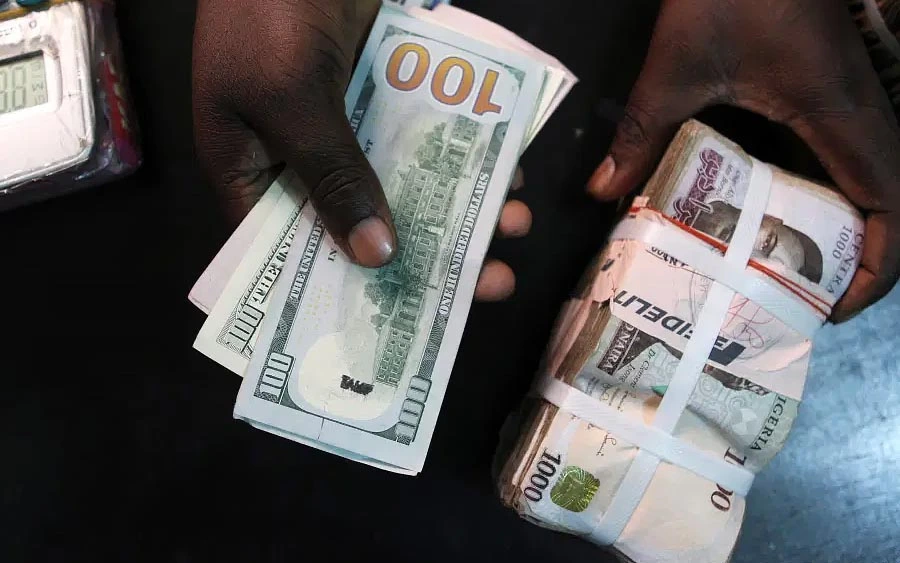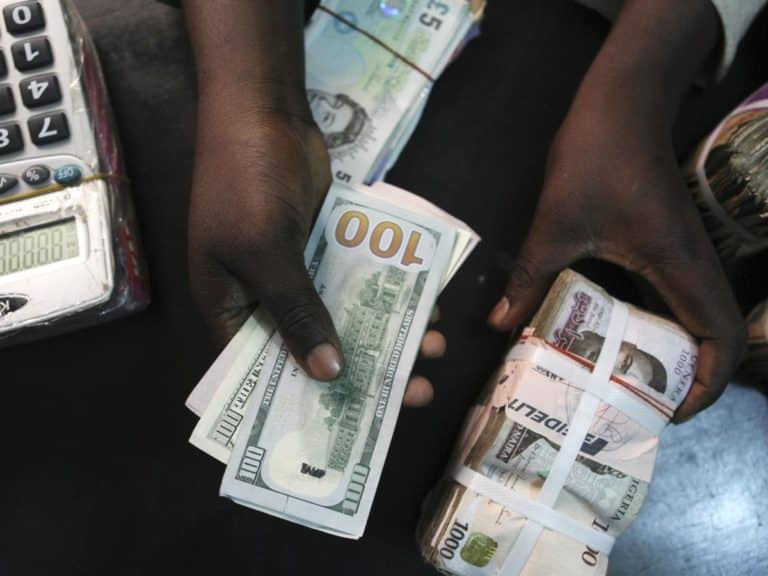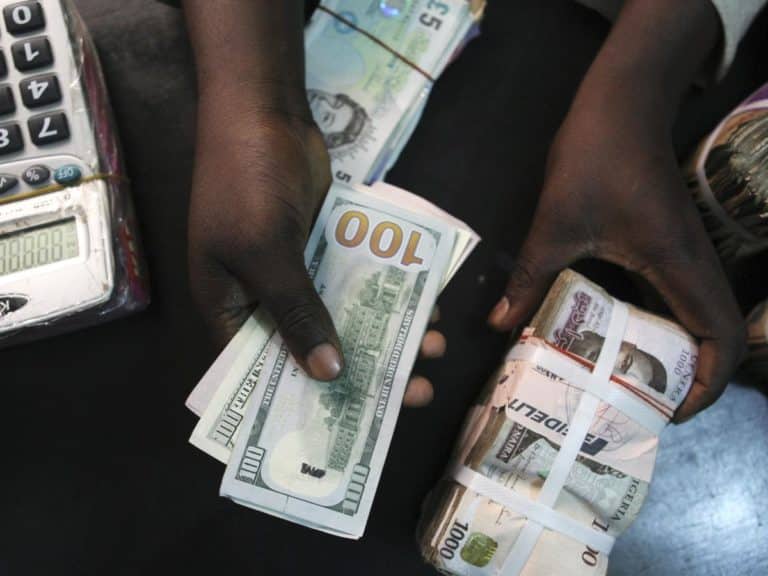Business & Economy
BREAKING: Naira Crashes Massively At Aboki Black Market As FX Demand Soars

Naira has crashed massively at Aboki Black Market as FX demand soars high.
Newsonline reports that the exchange rate between the naira and the US dollar opened at N584/$1 at the Aboki Black Market as FX demand soars high, representing the second-lowest fall since January 4th 2022.
The local currency opened at N584.00 per $1 at the parallel market otherwise known as the black market, today, Friday, 25 March 2022, in Lagos Nigeria, after it closed N580.00 per $1 on Thursday, 24 March 2022.
Even though the dollar to naira opened in the parallel market at ₦584 per $1 today, Newsonline reports that the Central Bank of Nigeria (CBN) does not recognise the parallel market, otherwise known as the black market. The apex bank has therefore directed anyone who requires forex to approach their bank, insisting that the I&E window is the only known exchange.
Newsonline Nigeria reports that at the black market, the players buy a dollar for N578 and sell for N584 on Friday morning, March 25, 2022, after they bought N577 and sold for N580 on Thursday, 24 March 2022.
Meanwhile, Newsonline Nigeria reports that the USD started this week at ₦585 in Parallel Market also known as Black Market on Monday, March 21, 2022, in Lagos Nigeria, after it opened at 579 last week Monday, March 14, 2022.
In the same vein, Naira fell by 0.7% at the peer-to-peer exchange rate market to trade at a minimum of N586.1/$ in the early hours of Friday morning. This is in contrast to the N580/$1 recorded on Thursday, 24th March 2022.
In terms of foreign reserve, Nigeria’s FX reserve dipped further by 0.22% to stand at $39.58 billion as of Monday, 21st March 2022 compared to $39.67 billion recorded as of the previous day. The decline is attributed to the continuous intervention by the CBN in the official market.
This is just as banks have also limited customers’ access to forex, placing a cap of $20 per month for online transactions.
Insiders told Newsonline Nigeria that things may worsen even further as electioneering intensifies, adding that politicians had begun to mop up dollars, driving up the demand.
“The naira will keep falling because those who need dollars cannot get it and they will patronise the parallel market, increasing demand. It is also one of the fallouts of an election year. We are not earning as much FX and we will spend more financing on petrol subsidy. Ultimately, there will be a wider gap between the import and export window and the parallel market,” a government official, who craved anonymity, said.
The Chief Executive Officer of Financial Derivatives Company, Mr. Bismarck Rewane, had in January projected that the CBN would devalue the naira by the end of 2022, adding that spending on political campaigns ahead of the 2023 general elections would put more pressure on foreign exchange supply in the Nigerian economy.
Already, frustrated manufacturers and travellers have been forced to patronise BDC operators more often than before.
It was learnt that in some instances, banks were able to meet just about 30 per cent of customers’ demands.
“I applied for a $5,000 Business Travel Allowance through the CBN portal. But my bank said it could give me only $2,000,” said a businessman who wished to remain anonymous.
It was, however, learnt that the experiences of manufacturers were far worse.
“Never in a million years would I have thought Nigeria would get to this stage. How do you explain that a manufacturer had an invoice of $425,000 to import materials and all that is allocated to him from the CBN is $210? I can’t even wrap my brain around it,” said Bola Adefila, the Chief Operating Officer, Banrut Rolls Nig Ltd.




